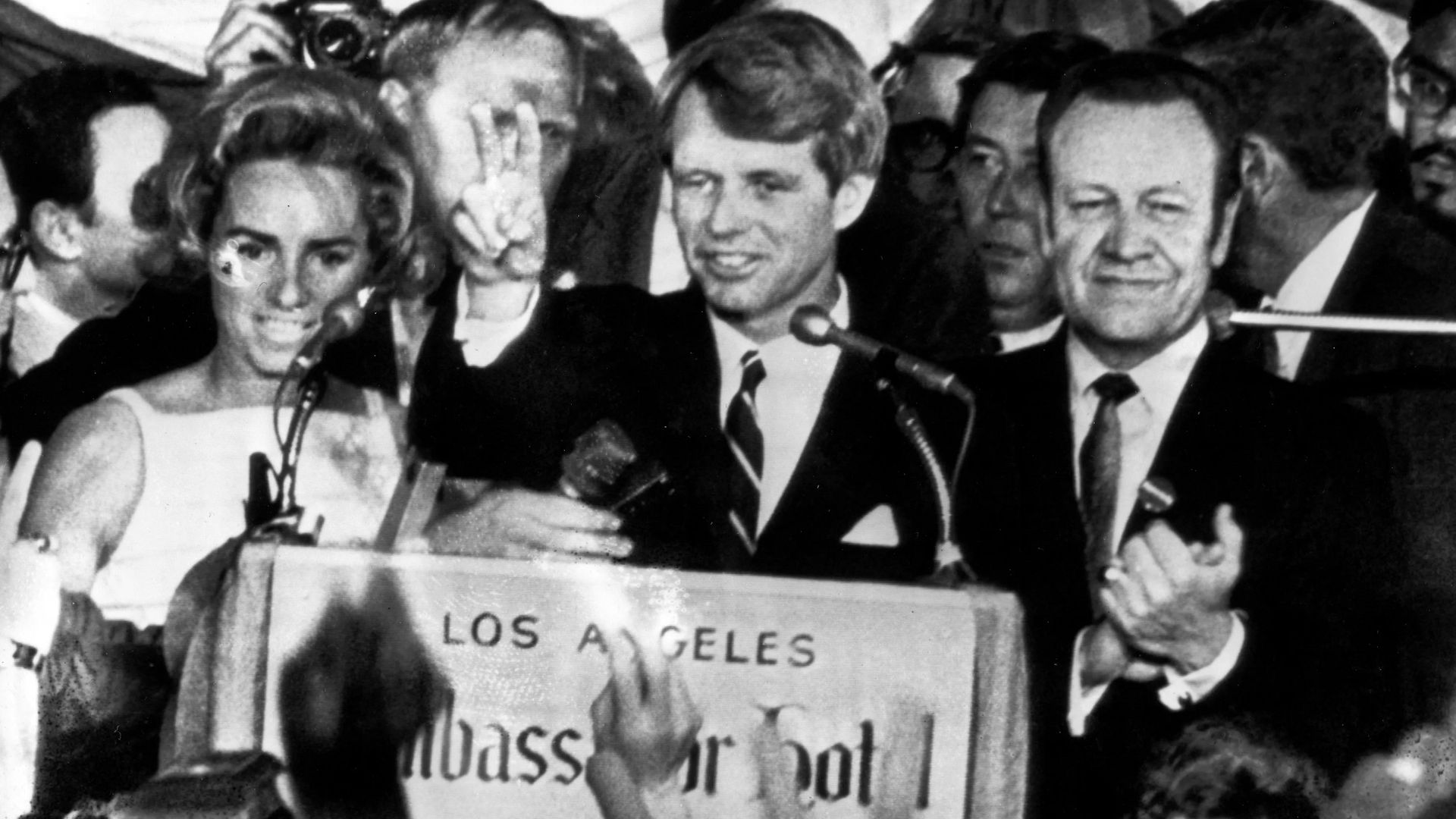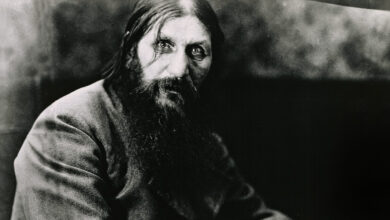The Assassination of Robert F. Kennedy
On the night of 4 June 1968, the ballroom of the Ambassador Hotel in Los Angeles was alive with celebration. Senator Robert F. Kennedy had just won the California Democratic primary, a significant step in his campaign for the presidency of the United States. The mood was electric, the crowd chanting “RFK! RFK!” as Kennedy delivered a short, hopeful speech. But within minutes, the promise of a new political era was shattered. As Kennedy walked through the hotel’s kitchen, which he had been told was a shortcut to a press room, he turned a corner in a narrow corridor and gunfire erupted. The senator fell to the floor, mortally wounded. By the following day, Robert F. Kennedy was dead, the victim of an assassination that shocked America and the world.
The Kennedy Legacy
Robert Francis Kennedy was born on 20 November 1925, the seventh of nine children in the Kennedy family. His older brother, John F. Kennedy, would become the 35th President of the United States, and Robert served as his Attorney General from 1961 to 1964. In that role, he was a key adviser during some of the most turbulent moments of the Cold War, including the Cuban Missile Crisis. He was also a driving force in the federal government’s push for civil rights, clashing with segregationist leaders and ordering federal marshals to protect Freedom Riders and integrate Southern universities.
After John F. Kennedy’s assassination in 1963, Robert stayed in public life, eventually winning a Senate seat representing New York in 1964. His focus shifted toward poverty, racial justice, and opposition to the Vietnam War. By 1968, he had emerged as a leading contender for the Democratic presidential nomination, appealing to a broad coalition of working-class Americans, African Americans, Latinos, and young voters disillusioned by politics-as-usual.
A Campaign of Hope
The 1968 Democratic primaries unfolded in a climate of turmoil. The United States was deeply divided over Vietnam, and the civil rights movement was mourning the recent assassination of Dr. Martin Luther King Jr. Kennedy’s campaign emphasised unity, compassion, and change. His speeches called for an end to racial injustice, a reassessment of foreign policy, and a renewed focus on lifting people out of poverty.
California was a pivotal state. A win there would give Kennedy momentum against Vice President Hubert Humphrey, who had the backing of the Democratic establishment, and Senator Eugene McCarthy, who had built a base among anti-war activists. The primary race was close, but Kennedy’s appeal across ethnic and economic lines gave him the edge.
Victory at the Ambassador
On the evening of 4 June 1968, Kennedy watched the returns come in from a suite at the Ambassador Hotel. When the networks declared him the winner, he went downstairs to address supporters. The ballroom was packed with campaign workers, journalists, and well-wishers.
Just after midnight, Kennedy took the stage to thank his supporters and promise that “now it’s on to Chicago, and let’s win there.” He waved, smiled, and prepared to leave the stage. His aides planned for him to exit through the kitchen, a quicker route to the press area and a waiting celebration.
The Shooting
As Kennedy entered the kitchen area, the narrow space was crowded with hotel staff, campaign workers, and journalists. Suddenly, a 24-year-old man stepped forward from the crowd, holding a .22 calibre revolver. At point-blank range, he fired.
Kennedy was struck three times: once behind the right ear, once in the back, and once in the shoulder. Five other people were wounded by stray bullets. Chaos erupted as bystanders wrestled the gunman to the ground. The assailant was identified as Sirhan Bishara Sirhan, a Palestinian immigrant who had been living in California.
Witnesses described Kennedy collapsing to the floor. His friend and campaign aide, Paul Schrade, who had also been shot, recalled seeing Kennedy’s lips moving as he whispered, “Is everybody okay?” Moments later, Kennedy lost consciousness.
Emergency Response
Kennedy was rushed to the Good Samaritan Hospital in Los Angeles. Surgeons worked for hours to remove the bullet lodged near the base of his brain. Despite their efforts, the damage was too severe. On the morning of 6 June 1968, at 1:44 a.m., 26 hours after the shooting, Robert F. Kennedy was pronounced dead. He was 42 years old.
News of his death was met with grief across the United States and abroad. For many, it was a cruel echo of the assassination of his brother five years earlier. Kennedy’s body was flown to New York, where it lay in repose at St. Patrick’s Cathedral before being transported by train to Washington, D.C., for burial at Arlington National Cemetery, near John F. Kennedy’s grave.
The Assassin
Sirhan Sirhan was born in Jerusalem in 1944 and emigrated with his family to the United States in the 1950s. He became a U.S. citizen and lived in Pasadena, California. In his diary, later recovered by police, Sirhan expressed anger over Kennedy’s support for Israel, particularly his promise to send fighter jets to the country. The assassination took place one year after the Six-Day War, a conflict that had heightened tensions in the Middle East and influenced Sirhan’s political views.
After his arrest, Sirhan admitted to shooting Kennedy but claimed he had no memory of the event. He was convicted of first-degree murder in 1969 and sentenced to death. When California abolished the death penalty in 1972, his sentence was commuted to life in prison. Sirhan has been denied parole numerous times, though he continues to maintain that he acted alone but without conscious recollection.
Investigations and Controversies
The official investigation concluded that Sirhan acted alone and that Kennedy’s death was the result of his gunfire. However, questions have lingered for decades. Some witnesses claimed that more shots were fired than the eight bullets the revolver could hold. Others have suggested that a second gunman might have been involved, pointing to inconsistencies in ballistic evidence and witness statements.
Conspiracy theories have flourished, fuelled by the political climate of the time and the memory of other high-profile assassinations. Some have speculated about CIA involvement, given Kennedy’s criticism of U.S. foreign policy, while others point to possible connections to organised crime. None of these theories have been conclusively proven, and the majority of historians and investigators accept that Sirhan was solely responsible.
Political and Cultural Impact
The assassination of Robert F. Kennedy came at a time when the United States was reeling from a series of national traumas. The Vietnam War was raging, the civil rights movement faced ongoing resistance, and the nation had already endured the assassinations of President Kennedy in 1963 and Martin Luther King Jr. just two months earlier.
Kennedy’s death altered the course of the 1968 presidential race. Without him, the Democratic nomination went to Hubert Humphrey, who lost narrowly to Republican Richard Nixon in the general election. Many believe that Kennedy’s unique ability to unite disparate groups, from working-class white voters to African Americans, Latinos, and young people, could have changed the outcome.
Culturally, Kennedy became a symbol of hope cut short. Photographs from the night of the shooting, particularly the haunting image of 17-year-old busboy Juan Romero cradling Kennedy’s head, became iconic. Romero later spoke of feeling a deep sense of loss and guilt, though Kennedy reportedly reassured him in his final moments.
Remembering RFK
Robert F. Kennedy’s funeral train from New York to Washington drew thousands of mourners who lined the tracks to pay their respects. His grave at Arlington has become a place of reflection, marked by a simple white cross and a stone bearing his name and dates.
His speeches, many of which called for empathy and moral courage, continue to be cited for their eloquence and vision. In particular, his remarks after the assassination of Martin Luther King Jr., delivered in Indianapolis, are remembered as a model of compassion and leadership in a time of crisis. Today, Kennedy’s legacy is celebrated in memorials, schools, and institutions bearing his name. His assassination remains one of the most significant political killings of the 20th century, a moment when the trajectory of American politics shifted, and a voice for unity and justice was silenced.
The Assassination of Robert F. Kennedy FAQ
Robert F. Kennedy was a U.S. Senator, former Attorney General, and leading Democratic presidential candidate in 1968, known for his work on civil rights, poverty, and opposition to the Vietnam War.
He was shot just after midnight on 5 June 1968 at the Ambassador Hotel in Los Angeles, shortly after delivering a victory speech for the California Democratic primary.
Sirhan Sirhan, a 24-year-old Palestinian immigrant, was convicted of the assassination. He claimed anger over Kennedy’s support for Israel.
His death ended a campaign that many believed could have united a divided America in 1968, altering the outcome of the presidential election and becoming one of the most impactful political assassinations of the 20th century.






